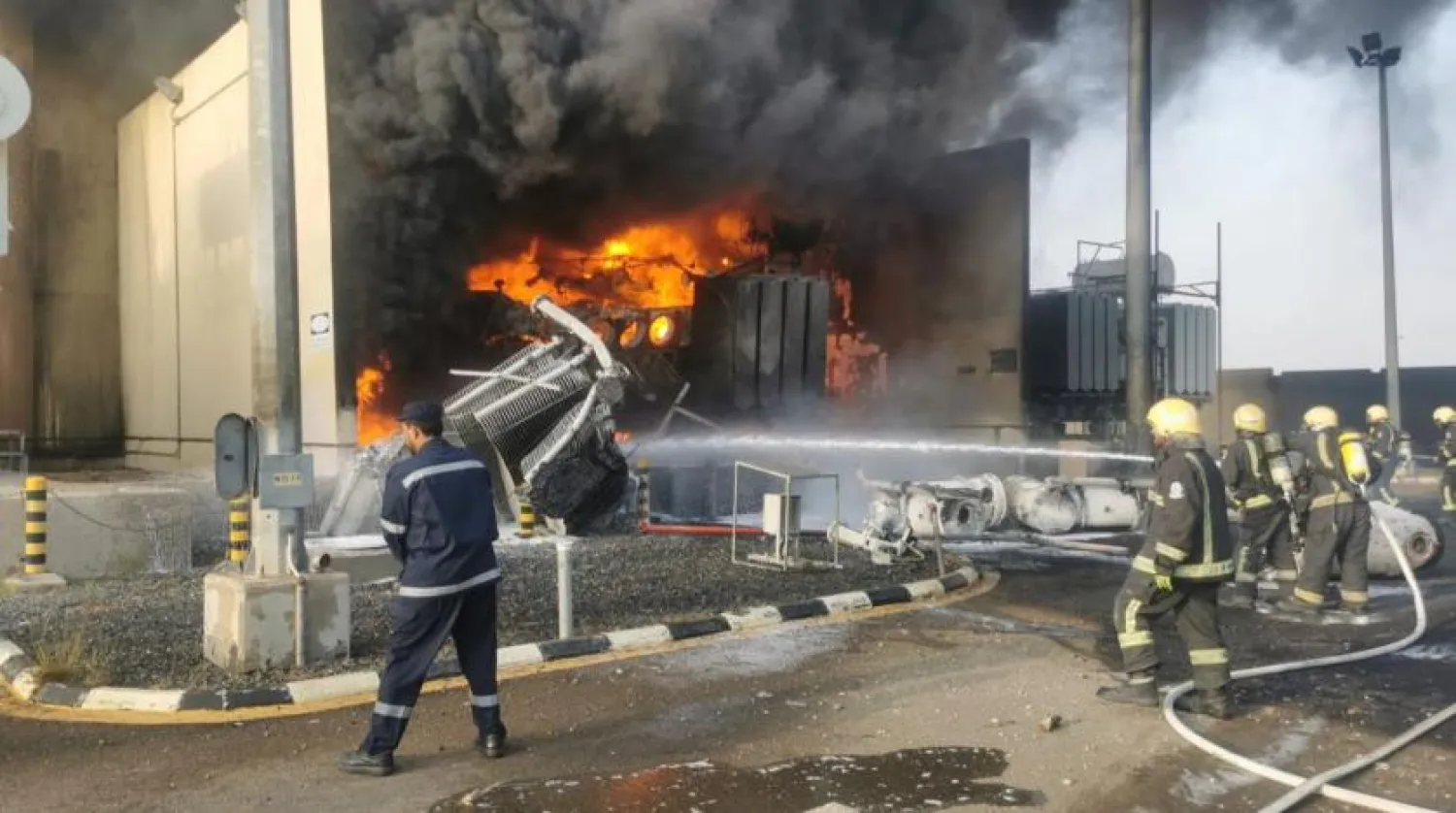The Saudi-led Arab coalition announced on Friday that the Iran-backed Houthi militias in Yemen had carried out 16 attacks against the Kingdom.
It warned them against continuing their grave violations and of testing the patience of the coalition.
The coalition announced that Saudi defenses shot down 12 armed drones and a ballistic missile fired at the southern and southwestern regions of the Kingdom.
One attack targeted Saudi Aramco’s Bulk Plant in Jeddah.
Official Spokesperson of the Coalition to Restore Legitimacy in Yemen Brigadier General Turki Al-Malki said: "At 17:25, Saudi Aramco’s Bulk Plant in Jeddah was targeted with an act of aggression, the early indications of which suggest that it was targeted by the terrorist, Iran-backed Houthi militias."
A fire erupted in two tanks in the oil facility; the fire was controlled, and no injuries or loss of life were recorded.
"This hostile escalation targets oil facilities, and aims to undermine energy security and the backbone of global economy. These hostile attacks had no impact or repercussions in any way, shape or form on public life in Jeddah City," said Malki.
The coalition said a projectile attack led to the eruption of a small fire at a power distribution plant in Samta, Jizan. No causalities were reported.
A hostile attack targeted the tanks of the Saudi National Water Company in Dhahran al-Janub.
The interception and destruction of two drones fired at Najran city led to the crashing of remains over some residential areas, causing minor material damage. No casualties have been reported.
The coalition accused the Houthis of deliberately targeting civilians and energy facilities, warning that the continued terrorist attacks will threaten regional and international security.
"We are exercising restraint for the sake of the Yemeni brothers to ensure the success of the upcoming intra-Yemeni consultations," added the coalition.
The consultations will kick off in Riyadh on Tuesday. They are being sponsored by the Gulf Cooperation Council.
"We reserve the right to respond at the appropriate time," stressed the coalition, while expressing its backing for the consultations and accusing the Houthis of aiming to obstruct them.
An official source at the Energy Ministry said a petroleum distribution plant in northern Jeddah and a plant in al-Mokhtara in Jizan were attacked by a rocket in the afternoon.
No casualties were reported.
Saudi Arabia will not hold responsibility for any shortage of oil supplies in global markets caused by the Houthi attacks on its oil facilities, the Energy Ministry stressed.
It urged the need for the international community to realize the danger of Iran's continued supply of the Houthis with ballistic missiles and armed drones that are targeting Saudi oil and gas facilities and that are in turn affecting the Kingdom's output and ability to meet its commitments to the global markets.









